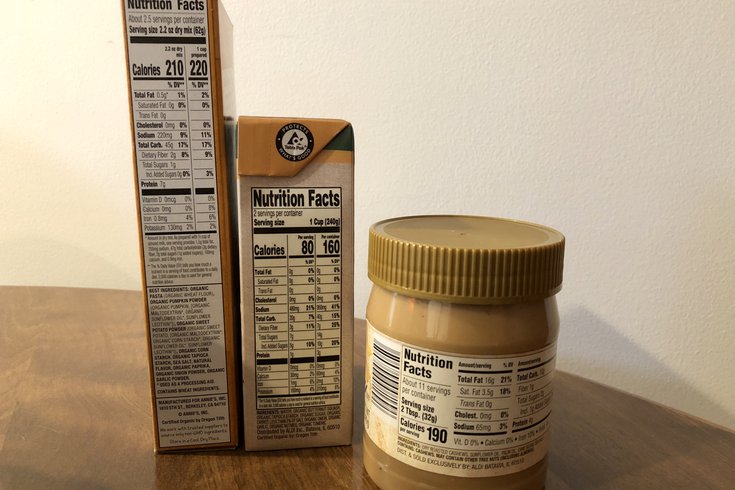
May 28, 2020
 John Kopp/PhillyVoice
John Kopp/PhillyVoice
The FDA is allowing food manufacturers and vending machine operators to alter some ingredients without indicating the changes on the nutrition label due to the impact the COVID-19 crisis is having on food supply.
Food manufacturers are now able to swap ingredients without reflecting those changes on product labels, so long as those changes meet certain criteria established by the U.S. Food and Drug Administration.
Due to the coronavirus pandemic's impact on the food supply, the FDA has temporarily rolled back its requirements for ingredient substitutions and product labeling.
"The goal is to provide regulatory flexibility, where appropriate, to help minimize the impact of supply chain disruptions on product availability associated with the current COVID-19 pandemic," the FDA said in a statement Friday.
The public health crisis has significantly impacted the food industry. Some items, like flour, have become more scarce as Americans buy in bulk. Meat production has been stressed by outbreaks at processing plants. Restaurant shutdowns have shifted food demands.
The FDA issued guidance to food manufacturers and vending machine operators, outlining the changes that can be made. The changes take consumer safety into account, the agency says.
The loosened restrictions allow manufacturers to make minor formulation changes, like substituting unbleached flour for bleached flour, or using sunflower oil instead of canola oil.
But the changes cannot include ingredients connected to adverse health effects, including food allergens, gluten and sulfites. And food manufacturers also can't remove a "characterizing ingredient" such as raisins from raisin bread.
Here are the six criteria that any minor formulation change must meet, according to the FDA:
Safety: the ingredient being substituted for the labeled ingredient does not cause any adverse health effect (including food allergens, gluten, sulfites, or other foods known to cause sensitivities in some people, for example, glutamates);
Quantity: generally present at 2 percent or less by weight of the finished food;
Prominence: the ingredient being omitted or substituted for the labeled ingredient is not a major ingredient in the product;
Characterizing Ingredient: the ingredient being omitted or substituted for the labeled ingredient is not a characterizing ingredient; for example, omitting raisins, a characterizing ingredient in raisin bread;
Claims: an omission or substitution of the ingredient does not affect any voluntary nutrient content or health claims on the label; and
Nutrition/Function: an omission or substitution of the labeled ingredient does not have a significant impact on the finished product, including nutritional differences or functionality.
Additionally, vending machine operators will not be required to list calorie counts on their products. Still, that means patrons may no longer be notified of the nutritional value of the foods they are considering purchasing.
The FDA already allowed for some food substitutions, including the "flexibility to exchange spices when the label declares the generic term 'spice.'"
The increased flexibility afforded manufacturers is among various FDA restrictions that have been eased amid the COVID-19 crisis. Others have addressed menu labeling, the packaging and labeling of shell eggs, the distribution of eggs to retail locations and nutrition labeling on food packages.
Follow Allie & PhillyVoice on Twitter: @allie___miller | @thePhillyVoice
Like us on Facebook: PhillyVoice
Add Allie's RSS feed to your feed reader
Have a news tip? Let us know.